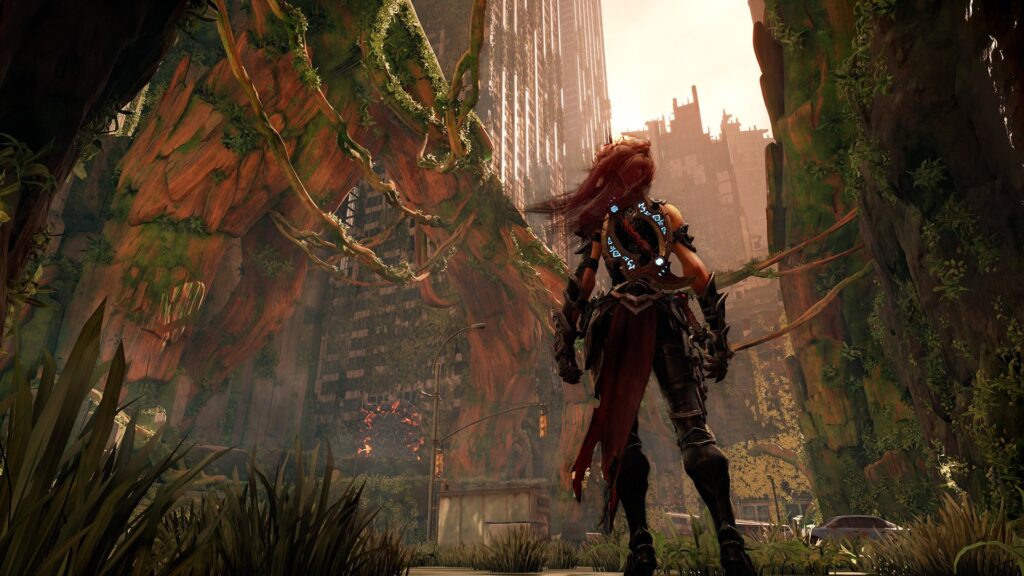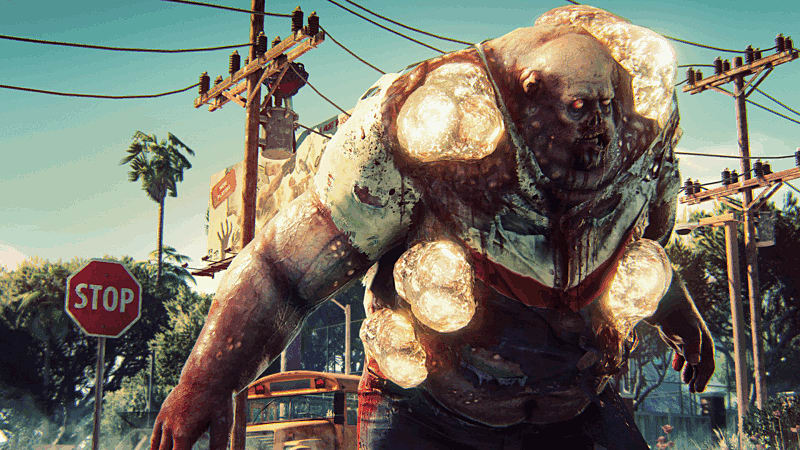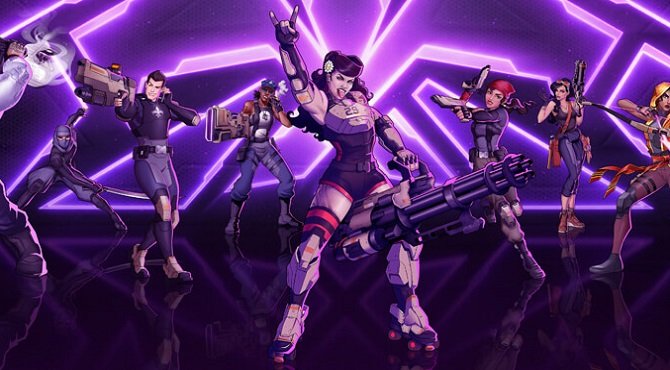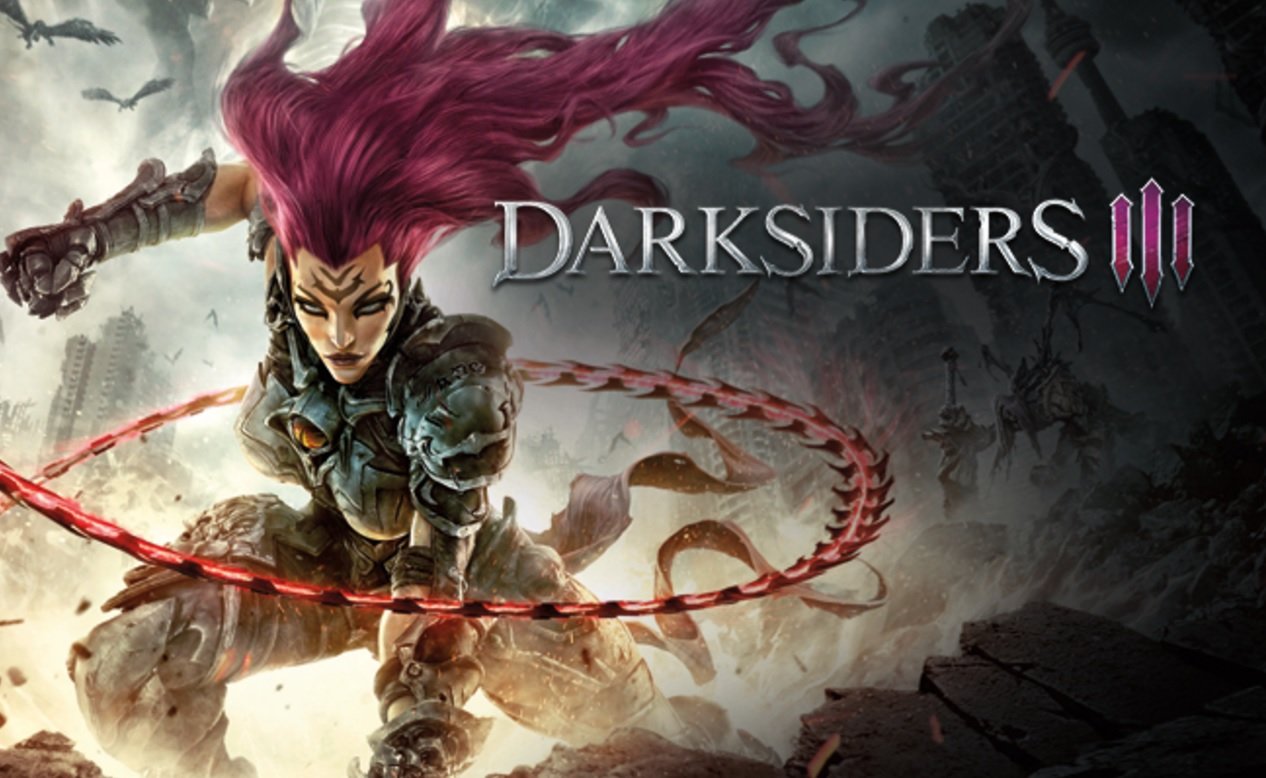
THQ Nordic is on the hunt again. With a freshly minted $168 million earmarked for acquisitions, the tiny publisher-turned-merger machine is set to make news, and probably soon.
It’s been four months since THQ Nordic acquired Deep Silver and all its properties. Coming off an E3, which featured a stunning look at Metro Exodus, things are looking bright for the publisher’s future. To understand where THQ Nordic might be going, we can look back at its path so far.
The video game industry is an incestuous puddle of mergers, divestments, acquisitions, and closures that often requires complicated maps to decipher. As long as there is clear ownership, brands never die (just ask any of the companies that have at one time borne the Atari name).
THQ has fully risen from the grave, finally clawing out from the dirt it was buried in after 2013’s bankruptcy auctions. The THQ of old was shattered into component intellectual properties and its meatiest bones picked clean by Ubisoft, Deep Silver, Sega, Crytek, and Take-Two. During the second wave of sell-offs, Nordic Games acquired the bulk of what was left. The relatively young company (founded in 2011) later acquired the THQ brand and logo in 2014. The company rebranded as THQ Nordic in August 2016.
It’s been a strange five years, and while all THQ’s pieces haven’t been glued back together, the company has been almost entirely reconstituted under new ownership, Nordic Games (now operating as THQ Nordic). The €121 million ($149 million) February 2018 acquisition of Deep Silver parent, Koch Media, brings the Saints Row, Metro, and Homefront franchises back to the THQ family. Koch Media will continue to operate as a separate entity.
But is there room for another mega-publisher in an industry that is getting more hit-driven by the quarter? And, even if there is, does THQ Nordic want to play in that sandbox?
With the right games, talent, marketing, and warchest (a stockpile of cash), the answer to the first question is, of course, yes. Consumers don’t often buy games because of the publisher, though they may avoid titles released by some companies for a variety of reasons. And while consolidation and attrition happens as a market becomes crowded (we’re pouring one out for Midway, Majesco, and Acclaim), there is always room for new players who have the resources and tenacity to compete in the cutthroat world of video game publishing.
Despite having a huge portfolio and significant resources, it’s far too early to know if THQ Nordic wants to stand shoulder-to-shoulder with EA, Activision, and Ubisoft. If they do, we likely won’t see that growth happen rapidly. THQ Nordic has been methodical since its acquisition of the majority of Old THQ’s properties.
The company is playing to its strengths and making the most of its acquisitions. No reorganization is planned at Koch Media and Deep Silver, which is good news for employees, as it strongly suggests there won’t be layoffs. Additionally, THQ Nordic is communicating confidence in Koch Media leadership. CEO and co-founder Klemens Kundratitz is staying on in his position at Koch Media and is now a THQ Nordic shareholder.
The path to THQ 2.0 is filled with a number of routine (and easily ignored) business moments: game releases, acquisitions, and mundane resource allocations. THQ Nordic has only started sharing financial information with the public since its IPO in November 2016. Koch Media was a privately held company until the acquisition with no obligation to publish earnings data.
When you look at these two companies, it appears as if David felled Goliath. In a presentation made to THQ Nordic shareholders announcing the purchase, we get our first look at Koch Media’s financial situation. For the nine months between April and December 2017, Koch Media’s revenue totaled €257.6 million ($319.7 million). By comparison, THQ Nordic revenue was a mere 16.7 percent of that, amounting to $53.4 million.
With just that information, it seems baffling that THQ Nordic, even with its huge warchest would be able to acquire a company as large as Koch Media. However, a deeper look at the financials reveals that Koch was in some financial distress. The company shows a pre-acquisition net loss of €18.6 million ($23.1 million) for April through December 2017.
Rumors of Koch Media’s hunt for a buyer emerged in 2014, but were quickly denied. At the time, the company claimed it was profitable and that it was on the lookout for new growth opportunities through acquisition. There’s no reason to believe this was a feint. The deck was stacked in Koch Media’s favor, especially after taking a big step forward when it acquired Volition and the Metro franchise.
Because there are no public financial reports for Koch Media prior to the THQ Nordic acquisition, we’re left to look at the events over the past five years to chart Koch Media, Deep Silver, and THQ Nordic’s trajectories. For the former, we find a series of big bets that ultimately led to a number of releases that didn’t live up to gameplay or sales potential. For the latter, there is a pattern of smaller acquisitions at a slower pace that seems methodical, even cautious.
It’s safe to postulate that a single year of losses wouldn’t likely lead a company into the arms of a much smaller suitor.
But a series of Deep Silver stumbles may have softened Koch Media’s financial position, leading to the transformation from growing publishing powerhouse to newly acquired gem.
The Dead Island franchise was Deep Silver’s crown jewel, capitalizing on the zombie craze that started in the late oughts and has been tapering off significantly since. The series debut was well-received in 2011, with unique gameplay and engaging multiplayer. Unfortunately, the franchise suffered two major misses, with the survival-meets-adventure Escape Dead Island and the delay and eventual disappearance of Dead Island 2.

In January 2015, Deep Silver ran into the situation no publisher wants. It goes something like this: An external developer makes a hit game for you and decides to strike out on their own. Instead of keeping the partnership alive, you’re suddenly in competition in the same genre, with similarly themed games against someone who knows your playbook.
That’s exactly what happened when Dead Island and Dead Island: Riptide developer Techland parted ways with Deep Silver to make its own game. On the surface, it’s clear to see how Techland incorporated the concepts it developed for Dead Island in Warner Bros.-published Dying Light. However, the parkour movement and impactful day-night cycle evolve the core concepts, giving Dying Light its own legs to stand on.
Techland’s title was first to market, as Dead Island 2 was still getting off the ground. The zombie action sub-genre was already crowded, and the similarities between what people knew of Dead Island 2 and what they could play right that very moment in Dying Light left Deep Silver in a tough spot.
Dead Island 2 was delayed from 2015 to 2016. Then Yager (Spec Ops: The Line, Dreadnought) was removed from the project. Not much has been heard about Dead Island 2’s development except that Sumo Digital has been tapped to finish the game. The studio is also working on Crackdown 3 for Microsoft and developed the Colorado episode for IO Interactive’s Hitman. Dead Island 2 is still featured prominently on Sumo’s website and appears in THQ Nordic’s presentation to investors about the acquisition, despite going quiet nearly two years ago.
Deep Silver also bet on a co-publishing arrangement with Crytek for a new Homefront game. Crytek fell on hard financial times and Deep Silver purchased the Homefront IP, which went for $500,000 at the THQ asset auction. The big expense for Deep Silver was founding Dambuster Studio to finish the work started by Crytek UK. Homefront tanked at retail, especially given a release between two other titanic games.
The Saints Row franchise has gone quiet after the January 2015 release of Saints Row IV: Re-Elected and Saints Row: Gat out of Hell. While Volition shifted gears, leaving the lovably irreverent motley crew behind was a bold choice that didn’t pay off at retail.

Volition’s Agents of Mayhem, was the a half-step away from Saints Row, carrying forward the regal purple and fleur-de-lis, but dumping the bombastic street gang in favor of a GI JOE-style crew of over-the-top soldiers. A month after its release, reports of significant layoffs at the Illinois studio started popping up. Early estimates approximated 30 of the 200-person staff was let go. That number was later revealed to be significantly higher, totalling about 25 percent of Volition’s staff. The value of the Agents of Mayhem IP was reduced by SEK 431 million ($54.8 million), as reported in the acquisition materials.
Despite the AAA missteps, Deep Silver found a way to leverage its publishing resources, offering services to Kickstarter-funded developers. The publisher first teamed with Mighty No. 9 developer Comcept. Deep Silver not only handled marketing and physical releases, but ensured that the game would be localized in more territories and receive voice over in two additional languages.
While Mighty No. 9 met with critical disappointment, Deep Silver was onto something.
Using existing capacity and relationships to help other companies in need of services is a smart use of resources. The company recognized it had capacity to take on publishing duties for developers that didn’t have key distribution and promotion relationships in place already. This leverages existing capabilities that might otherwise go unused. Deep Silver recently helped release Kickstarter-funded Kingdom Come: Deliverance and has announced it will be offering similar services for Shenmue III.
Even if Deep Silver’s work with its high-potential IPs hasn’t yet paid off, Koch Media is a tasty morsel (and appealing growth opportunity) for THQ Nordic. Not only does it fit THQ Nordic’s IP acquisition profile, but it opens up new relationships.
For all of the publishing stumbles, Koch Media is more than just Deep Silver and the games it releases. The company operates a massive distribution operation throughout Europe, catering to a number of impressive partners, including Square Enix, Sega, Capcom, Bethesda, Koei Tecmo, Paradox Interactive, and more.
This pairs nicely with THQ Nordic’s own distribution activities. The publisher teamed up with Microsoft to release collector’s editions of Remedy’s Quantum Break and Creative Assembly’s Halo Wars 2.

THQ Nordic’s relatively young star has been on the rise since early 2013, when it acquired Darksiders, Red Faction, and most of THQ’s smaller franchises. While fans worried at first about the fate of the Darksiders series in particular, THQ Nordic has offered hope for the apocalypse. The third entry in the franchise is currently in development at Gunfire Games, made up of a number of Vigil Games alumni. Additionally, the publisher has branched out with new IP, like Elex and Biomutant, bringing more than sequels, updates, and remakes to market.
The company has continued to expand, buying up more franchises and posting a 68 percent sales revenue jump year-over-year and adding SEK 600 million ($75 million) to its warchest as the 2017 fiscal year closed on December 31, 2017.
Despite this, THQ Nordic has hung onto its small company feel. CEO Lars Wingefors still lists his email address and direct phone number on the company’s investor relations page, an uncommon practice even among mid-sized publishers.
THQ Nordic has been slowly acquiring studios, developing wholly owned, new intellectual properties, and adding more established franchises to its portfolio. The Koch Media purchase brings the total number of owned studios from seven to ten. It also brings the total number of unannounced games to 33 from 24, with another 17 projects in development and already revealed to the public.
The resulting merger sets THQ Nordic up to be a major player, especially in Europe. The publisher’s strong financial performance nearly offsets Koch Media’s losses, reducing them to SEK $33 million ($4 million) for the nine months ended December 31, 2017. With a pattern of consistent year-over-year growth from THQ Nordic’s pre-acquisition operations, the company is on trajectory to be in the black at the close of next fiscal year.
THQ Nordic isn’t Old THQ. This new incarnation brings together much of the original company’s catalog, sure. But it’s a fresh start. These beloved games have a chance to shine again. Old favorites that have been almost forgotten may find new life (possibly in the hands of original creators).
What’s been left behind are the challenges that sunk Old THQ. Wingefors and his team have made smart acquisitions and methodical decisions so as not to overreach or take on too much growth too fast, a lesson it may have learned from watching Deep Silver.
Taking it slow gives THQ Nordic other advantages. They aren’t going to break new ground. That’s part-and-parcel of a risk-averse strategy. They have the opportunity, though, to avoid big mistakes. Most recently, we’ve seen publishers face serious blowback over in-game monetization that has the potential to adversely affect the entire game industry. If you aren’t rushing to the front of the line, you won’t trip over the same things as everyone else.
THQ Nordic also gets to hang onto its folksy, small business feel for a little longer.
The company already answers to thousands of shareholders, but still seems approachable. Becoming too big and too corporate, especially at a fast pace, will change how investors and pundits view them.
The conditions are ripe for success. The pieces are in place for THQ Nordic to take a place next to EA, Activision, Ubisoft, and Square Enix. The emerging powerhouse might never choose to step into that spotlight, though. Instead, it may opt to stay just off to the side, making more conservative decisions in an industry that fetishizes risk. And if it does decide to try its hand with the biggest budget blockbusters? Don’t expect it to happen overnight.
December 19, 2012 – THQ files for bankruptcy.
January 23, 2013 – The first THQ asset auction. Deep Silver purchases Saints Row / Volition and the Metro franchise.
April 22, 2013 – The second THQ asset auction. Nordic Games vacuums up almost all of THQ’s remaining IP, including Darksiders, Red Faction, and MX vs. ATV.
June 24, 2013 – Nordic Games purchases Atari titles Desperados and Silver.
May 12, 2014 – Nordic Games acquires five adventure games from DTP Entertainment.
June 12, 2014 – Nordic Games buys THQ logo and brand.
July 30, 2014 – Deep Silver purchases the Homefront franchise from former partner Crytek and founds Dambuster Studio to finish Homefront: The Revolution.
January, 27 2015 – Techland beats Dead Island 2 to market with Dying Light.
April 18, 2015 – Deep Silver begins announces publishing partnership with Mighty No. 9 developer Comcept.
April 30, 2015 – Dead Island 2 is delayed from 2015 to 2016.
July 14, 2015 – Deep Silver drops Yager as Dead Island 2 dev.
February 3, 2016 – Nordic Games purchases a number of IPs from Digital Reality, including Sine Mora.
May 27, 2016 – Critics pan Deep Silver’s Homefront: The Revolution.
August 10, 2016 – Nordic Games begins partnership with Microsoft to release collector’s edition of Remedy’s Quantum Break. The partnership also yielded a Halo Wars 2 collector’s edition.
August 12, 2016 – Nordic Games AB rebrands as THQ Nordic, bringing back Old THQ’s red logo.
October 31, 2016 – THQ Nordic purchases NovaLogic back catalog, including Delta Strike series.
November 21, 2016 – THQ Nordic IPO causes valuation to jump 32 percent to €190 million.
December 5, 2016 – THQ Nordic buys Sphinx and the Cursed Mummy and War Leaders from Mobile Gaming Studios and Enigma respectively.
January 10, 2017 – THQ Nordic announces
May 2, 2017 – THQ Nordic announces Darksiders III is under development at Gunfire Games, a studio made up of Vigil Games (Darksiders) alumni.
August 15, 2017 – Deep Silver’s Agents of Mayhem falls flat at retail.
August 21, 2017 – THQ Nordic purchases Giana Sisters developer Black Forest Games.
August 28, 2017 – THQ Nordic acquires Magicka developer Pieces Interactive AB.
February 14, 2018 – THQ Nordic acquires Koch Media and its publishing subsidiary Deep Silver.
June 15, 2018 – THQ Nordic expands its warchest by $168 million.
 GameDaily.biz © 2025 | All Rights Reserved.
GameDaily.biz © 2025 | All Rights Reserved.